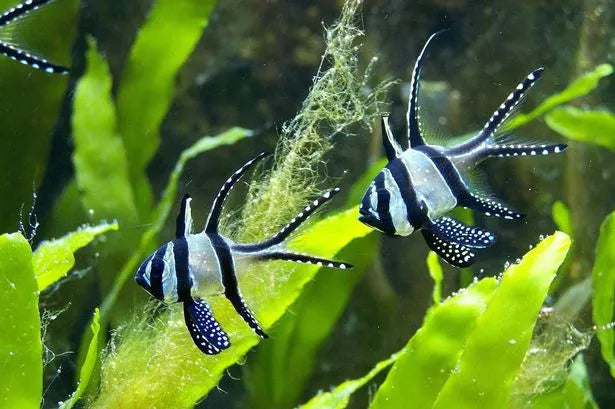
Sustainability Ethics in Collecting Rare Fish from the Wild
Collecting rare fish from their natural habitats in the vast and mysterious realms of aquatic ecosystems. The allure of these fish has captivated the hearts of hobbyists, collectors, and researchers alike, yet this practice raises significant ethical dilemmas. Today, we will delve into the complex web of ethics surrounding this issue, focusing particularly on the crucial aspect of sustainability.
Understanding Sustainability in Fish Collection
Sustainability is a critical component in the discussion of collecting rare fish. It involves ensuring that the populations of these species are not depleted to the point of endangerment or extinction. The first step in addressing this issue is understanding the impact of collection activities on wild populations. Over-collection can lead to drastic population decline, disrupting ecosystems and affecting biodiversity. This is where sustainability comes into play, emphasising the need for ecological balance practices.
The Role of Sustainable Practices
Sustainable practices must be adopted to navigate the ethical landscape of collecting rare fish. This includes adhering to regulations set by conservation bodies and international agreements designed to protect endangered species. Sustainable practices also involve the development of breeding programs that reduce the pressure on wild populations. By focusing on sustainability, collectors can enjoy their hobby without compromising the health of aquatic ecosystems.
Rare Fish Species at Risk
Several fish species are particularly vulnerable to unsustainable practices when it comes to collecting rare fish. Notable examples include:
Asian Arowana (Scleropages formosus) - Known for its striking beauty and cultural significance, the Asian Arowana is highly sought after but faces significant threats from over-collection.
Peppermint Angelfish (Paracentropyge boylei) - This stunning marine fish is prized for its vibrant colouration but is rare in the wild, making sustainable collection crucial.
Zebra Pleco (Hypancistrus zebra) - Native to the Rio Xingu in Brazil, this small, intricately patterned catfish is endangered due to habitat destruction and over-collection.
Bangaii Cardinalfish (Pterapogon kauderni) - Endemic to a small region in Indonesia, this fish's popularity in the aquarium trade has put immense pressure on its wild populations.
Coelacanth (Latimeria) - Once thought extinct, this "living fossil" is now known to exist in small populations, making its protection a priority for conservationists.
The Impact of the Aquarium Trade
The aquarium trade has been a significant driver in the demand for collecting rare fish. While this trade can be beneficial by promoting conservation efforts and funding research, it also poses risks. The unsustainable collection of rare fish for the aquarium trade has led to the decline of many species. Here, the principle of sustainability becomes essential. Ensuring that practises when collecting rare fish are sustainable not only protects the fish but also supports the long-term viability of the aquarium hobby.
Conservation Efforts and Legal Frameworks
Governments and conservation organisations worldwide have implemented various legal frameworks to safeguard rare fish populations. These laws aim to regulate the collection and trade of endangered species, promoting sustainable practices. By complying with these regulations, collectors can contribute to conservation efforts and ensure that their activities are ethical. Sustainability is at the heart of these efforts, guiding the development of policies that balance human interests with environmental protection.
Ethical Considerations for Collectors
For collectors, embracing sustainability is not just a choice but a responsibility. Ethical collectors should prioritise sourcing fish from sustainable habitats and support breeders who practise sustainable aquaculture. This approach reduces the impact on wild populations and promotes the conservation of biodiversity. Additionally, collectors can advocate for sustainable practices within their communities, encouraging others to adopt ethical methods of collecting rare fish.
The Role of Education and Awareness
Education and awareness are pivotal in promoting sustainability in the collection of rare fish. By educating hobbyists about the importance of sustainability, we can foster a community that values conservation. Workshops, seminars, and informational campaigns can play a significant role in spreading knowledge and encouraging responsible practices. Through education, we can build a network of informed collectors who are committed to the principles of sustainability.
Challenges and Future Directions
Despite the progress made, challenges remain in achieving widespread sustainability in the collection of rare fish. These challenges include illegal fishing, habitat destruction, and the lack of enforcement of existing regulations. Moving forward, enhancing international cooperation, strengthening legal frameworks, and supporting scientific research are essential. Sustainability must be integrated into all aspects of the fish collection, from the initial capture to the final display in aquariums.
Is it Ethical to Keep Fish?
The ethics of keeping fish, particularly about collecting rare fish from the wild, are closely tied to sustainable practices. Prioritising sustainability ensures that the beauty and diversity of aquatic life are preserved for future generations. Sustainable fishkeeping involves maintaining balanced ecosystems, avoiding overharvesting, and supporting conservation efforts. This approach helps protect aquatic species and their natural habitats, ensuring that the hobby remains both vibrant and responsible. By embracing sustainable practices, we can enjoy the hobby of fishkeeping while also safeguarding our planet's aquatic treasures.
At Intan, we are here to provide you with premium fish feed. Our feed is tailored to meet the specific needs of each species. Every feed can spark positive change and create a future promoting quality, resilience, and well-being. We aim to serve the needs of hobbyists and breeders for the best quality of each species’ unique requirements. To know more about us, check out our Instagram page or find us at our nearest out spot.
We are not just a brand but stewards of the underwater world. We believe in the well-being of our friends and their mental health. Understanding and addressing the stressors that affect fish is not just a concept for us, it's a commitment. Through our dedication to research and innovative products, we aim to ensure that fish everywhere can lead happier, healthier lives.
